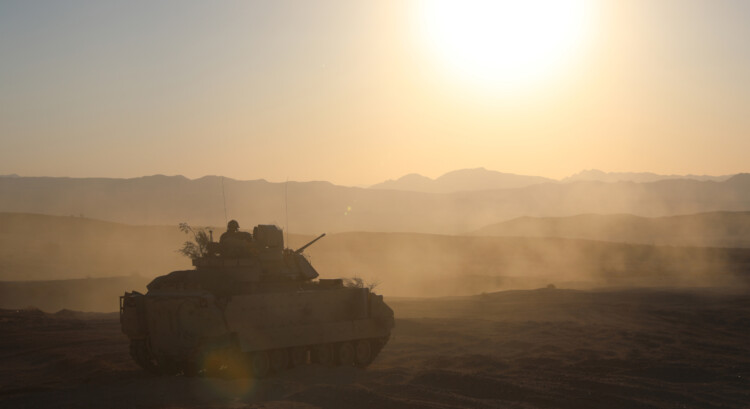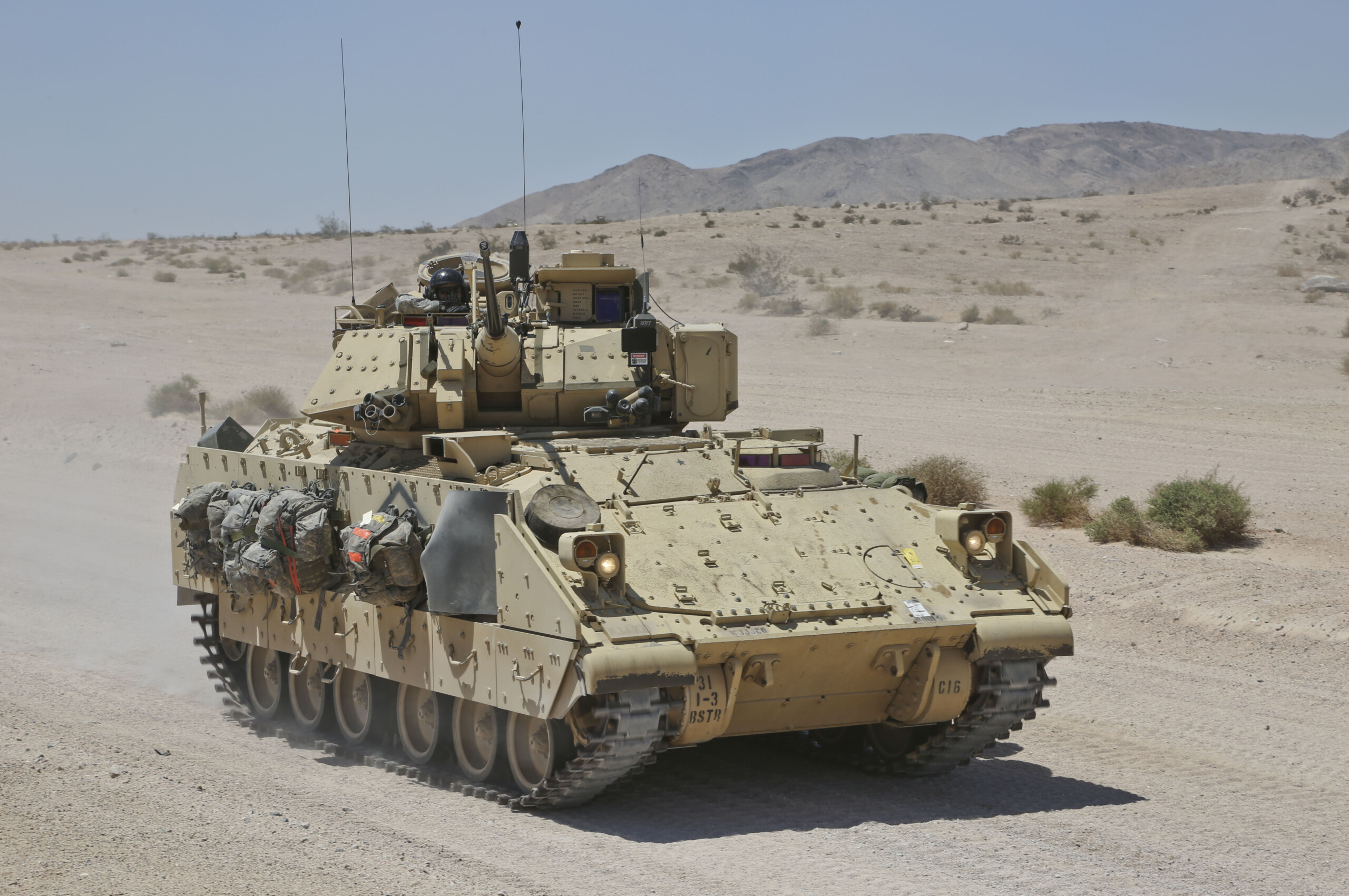Merging Man and Machine: Team Lynx’s Technological Breakthrough
Central to Team Lynx’s vision is the XM30 Mechanized Infantry Combat Vehicle, a robust and adaptive creation inspired by Rheinmetall’s Lynx KF41.
This next-generation combat platform boasts a three-member crew, including two human soldiers and an artificial intelligence-powered virtual crew member.
The integration of artificial intelligence introduces unprecedented levels of efficiency by identifying and tracking targets while placing the final engagement decision in the capable hands of the soldier. This collaboration between humans and machines offers a formidable synergy, exemplifying the evolution of modern warfare.

The consortium of industry giants forming Team Lynx ensures that a diverse range of expertise is harnessed to create this formidable combat vehicle. Alongside American Rheinmetall, the team comprises Textron Systems, Raytheon Technologies, L3Harris Technologies, Allison Transmission, and Anduril Industries. This collaborative effort capitalizes on each company’s unique strengths to deliver a vehicle that embodies the principles of superior protection, unsurpassed firepower, and unbeatable mobility.
General Dynamics, the other contender in this high-stakes competition, presents the Griffin III technology demonstrator, which draws on the proven technology of the Ajax scout vehicle chassis. With an impressive array of features, including scaled-down main gun systems from Griffin II, advanced active protection systems, and a loitering munition system, the Griffin III provides a formidable challenge to Team Lynx’s Lynx KF41.
New at AUSA: The Griffin III technology demonstrator, featuring a 50mm cannon able to elevate to an astounding 85 degrees. It’s ready for the megacity fight. #ausa2018 pic.twitter.com/ey45Zq1osD
— General Dynamics Land Systems (@GD_LandSystems) October 8, 2018
The Ultimate Arsenal: Features and Capabilities
The XM30 Mechanized Infantry Combat Vehicle, spearheaded by Team Lynx, is a modular marvel boasting open architecture that facilitates mission-specific configurations. Armed with a potent 50-millimeter cannon and the capability to host a range of drones, the Lynx KF41 promises unparalleled versatility on the battlefield. Guided missiles, high-performance thermal sights, and the capacity to accommodate nine soldiers underscore the Lynx’s adaptability and robust design.
In the words of American Rheinmetall, the Lynx KF41 aims to provide “a combat vehicle with superior protection, unsurpassed firepower, and unbeatable mobility.”
This declaration succinctly encapsulates the driving force behind the development of the XM30 Mechanized Infantry Combat Vehicle. Whether operating in conjunction with other units or autonomously navigating the complexities of a dynamic battlefield, the Lynx KF41 stands poised to redefine the capabilities of an Infantry Combat Vehicle.
Paving the Path Forward: A Vision Realized
The US Army’s decision to award the Phase 3 and Phase 4 contracts to Team Lynx for the development of the XM30 Mechanized Infantry Combat Vehicle marks a monumental stride toward modernizing its armored forces. With a robust combination of human expertise and cutting-edge technology, Team Lynx’s Lynx KF41 promises to revolutionize armored warfare by offering unparalleled protection, firepower, and mobility.
As the program progresses through its phases and the future deployment of these advanced vehicles draws nearer, the Lynx KF41 is primed to become a pivotal asset in shaping the face of modern conflict.











COMMENTS